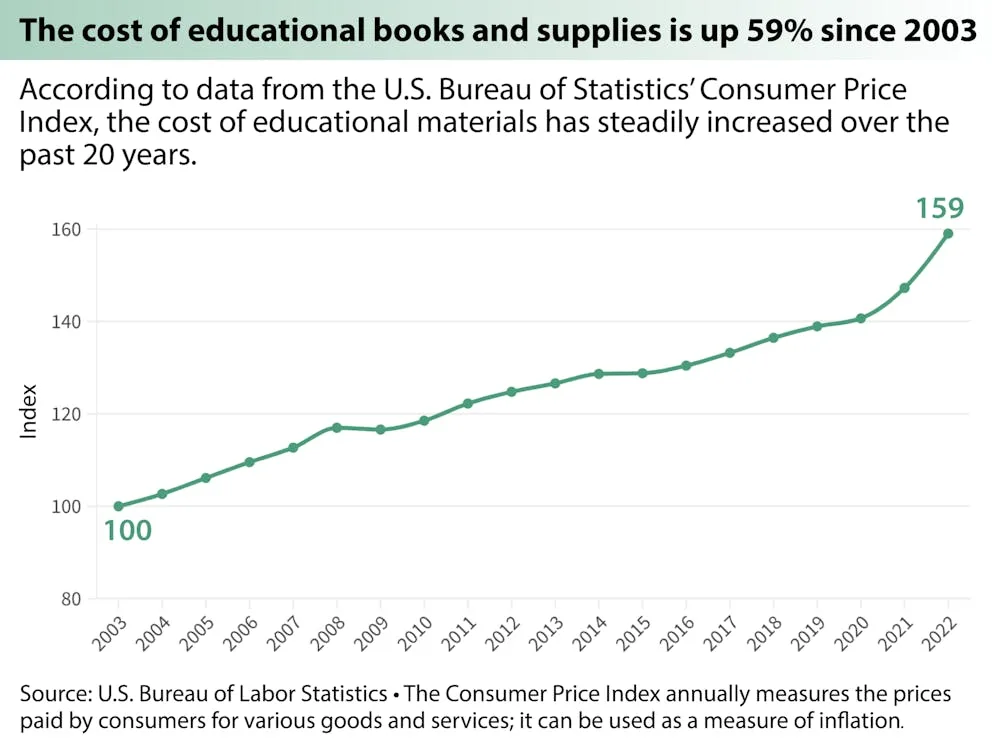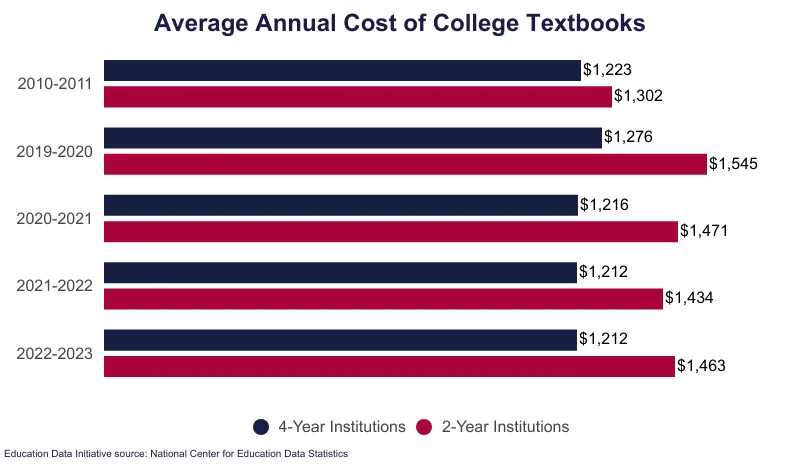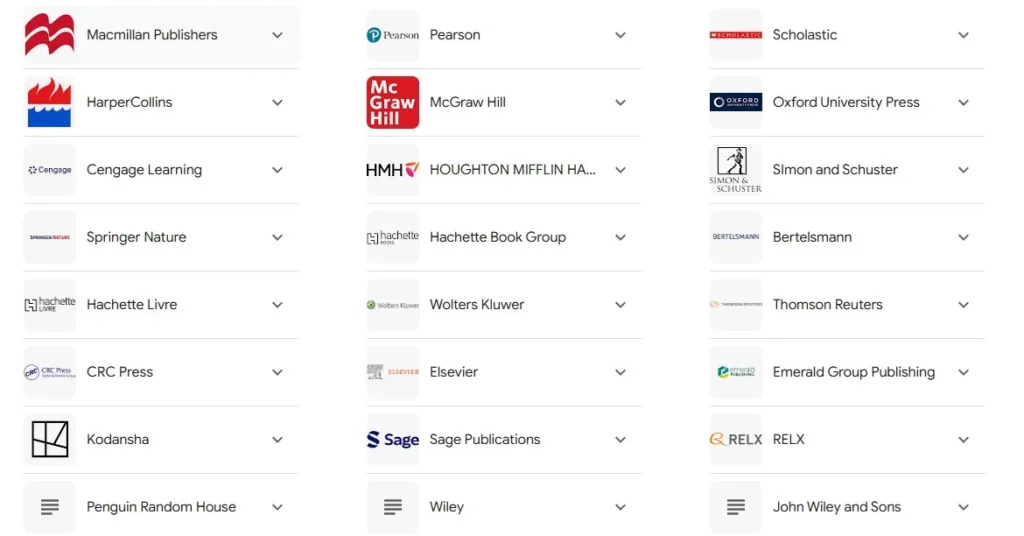College life can be very expensive, but you don’t have to break the bank. It’s true, college textbooks are very expensive. They represent one of the main financial challenges that burden parents and students besides college and university tuition. The image below how the costs of textbooks have kept rising from 1978-2013.


The good news is that there are plenty of insider tips and tricks to help you as a student to save a lot of money without sacrificing the quality of your education. In this guide, we share some practical and actionable ways to cut down your textbook costs dramatically.
Understanding the High Cost of College Textbooks
Before diving into how to save money, it’s important to take note of why college textbooks are so expensive in the first place. there are many factors that are at play in making college and university textbooks to be dramatically expensive e.g the textbook industry, the publishing companies’ practices and bundles access codes among many other factors.
The Textbook Industry: What Drives Prices So High?


One of the key reasons for high textbook prices is the dominance of a few large publishers who essentially control the market. This lack of competition gives them the power to set prices as they see fit. Below is a list of the top 5 textbook publishers that are dominating the market.
Top 5 Textbook Publishers in the World


- Macmillan Publishers
- Pearson
- McGraw-Hill Education
- Cengage Learning
- Houghton Mifflin Harcourt
Publisher Practices: Frequent New Editions
Have you ever wondered why textbooks seem to have new editions every year, even when the information hasn’t changed much? Publishers often release new editions with minimal updates to ensure that students and professors feel the need to buy the latest version, rendering older editions less valuable in the resale market.
Bundled Access Codes and Extra Materials College Textbooks
Many textbooks now come with access codes for additional online resources or software that are necessary for the course. Unfortunately, these bundled materials often can’t be bought secondhand, further driving up costs.
Insider Secrets to Save Money on College Textbooks
Now that you understand why textbooks are so expensive, let’s jump into the real reason you’re here—how to save money. Below are some tried-and-true methods that students have been using for years.
Buy Used Textbooks
One of the simplest ways to save money is by purchasing used textbooks. Often, the condition of the book doesn’t affect its content, and you can get them for a fraction of the cost.
Where to Find Quality Used Books

Your campus bookstore likely sells used books, but online marketplaces like Amazon, Chegg, and AbeBooks are often cheaper. You can also check out student groups or bulletin boards where graduating students or ones who were previously in your class sell their old textbooks.
Online Marketplaces for Used Textbooks
Websites like eCampus, ThriftBooks, and Textbooks.com offer great deals on used books, often including international editions, which can be much cheaper than their U.S. counterparts.
Rent Instead of Buying
Another popular way to save is by renting textbooks. Many platforms, both online and through college bookstores, allow you to rent textbooks for the semester at a significantly lower price than buying new. Online, textbooks can be rented on e-commerce platforms such as Amazon, Wiley and Chegg.
Best Platforms for Renting Textbooks
Some of the top sites for renting textbooks include Chegg, Amazon, and CampusBookRentals. These platforms offer flexible return policies, often allowing extensions if you need the book for a longer period.
Pros and Cons of Renting
Renting can be a great option, but you won’t be able to keep the textbook for future reference or resell it at the end of the semester. Make sure renting aligns with your long-term needs.
Compare Prices Online
Never settle for the first price you see online. There are numerous comparison tools that allow you to find the best deal by comparing textbook prices across various platforms.
Tools and Websites for Price Comparisons
Tools like BookFinder, BigWords, and SlugBooks aggregate prices from different sellers, helping you ensure you’re getting the lowest price possible. It is wise for you as a student to leverage the help provided by these tools to make the cost of your education cheaper.
Since we are talking about cutting costs. Our guide Dorm Room Essentials for College Students might be your next interesting read.
Explore Digital Versions or E-Books
If you’re open to reading on a screen, digital textbooks can be much more affordable compared to printed versions.
Free and Affordable E-Book Resources
Some websites, like Project Gutenberg and Google Books, offer free access to certain textbooks or required reading materials. You can also try VitalSource and RedShelf, which often have discounted digital textbooks. Another student learning platform on the rise called pasinggrades also offers free study materials for college and university students.
Using E-Readers and Apps for Digital Textbooks
Tablets and e-readers, such as Kindle or iPads, are great for reading digital textbooks. With apps like Notability or Evernote, you can also highlight and take notes digitally, mimicking the paper experience.
Utilize Library Resources
Never underestimate the power of your college library. I know going to the library cannot be everyone’s cup of tea, however, if you want to save money on college text books, I guarantee you that this can be one of the best alternatives.
Accessing Textbooks via College Libraries
Many college libraries keep copies of textbooks in reserve. While you can’t take them home for the entire semester, you can borrow them for short periods, which is helpful for assignments or study sessions.
Public Libraries and Online Repositories
Public libraries and platforms like OpenStax or the Internet Archive offer free access to textbooks and academic resources, giving you another way to save.
Creative Ways to Save on Textbooks
Beyond traditional routes, there are some lesser-known methods for saving on textbooks that might surprise you.
Buy International Editions
International editions are often identical to U.S. versions but significantly cheaper.
How International Editions Differ in Price and Content
These editions might have a different cover or be printed on lower-quality paper, but the content is almost always the same. Sites like AbeBooks often carry these cheaper alternatives.
Share Textbooks with Classmates
Teaming up with a classmate to share a textbook is another way to split the cost.
Effective Sharing Strategies
Set a schedule for who gets the book on which days or use scanning apps like CamScanner to share sections as needed. This method can help you cut costs in half.
Use Older Editions
Older editions can often be just as useful as the latest one, especially in subjects where the material doesn’t change rapidly.
Determining When Older Editions Are Still Useful
Before buying an older edition, check with your professor to ensure that there aren’t any critical updates or page number discrepancies that would affect your studies.
Additional Tips for Reducing College Textbook Costs
Look for Open Educational Resources (OER)
OER are freely accessible, openly licensed materials that are an excellent resource for students. Websites like OER Commons and Open Textbook Library offer free textbooks on various subjects.
Use Cashback Programs or Student Discounts
Always take advantage of student discounts or cashback programs available on certain websites or credit cards.
Join Online Forums or Social Media Groups for Textbook Exchange
Platforms like Reddit’s r/TextbookExchange or Facebook groups for students are great places to swap, sell, or borrow textbooks from other students.
Mistakes to Avoid When Trying to Save on Textbooks
Rushing into Purchases Without Research
Don’t rush to buy your textbooks before exploring all your options. Spending time comparing prices can save you hundreds of dollars over the course of your degree.
Ignoring Hidden Costs in Renting
Be sure to read the fine print when renting. Some rental services charge late fees or damage fees, which can add up quickly.
The Future of Textbooks: Are They Becoming Obsolete?
The Rise of Open-Source Materials and Free Textbooks
As open-source materials become more widely accepted, the need for costly textbooks could decrease. Many colleges are adopting free or low-cost textbooks to ease the financial burden on students.
How Educational Institutions Are Shifting
Some institutions are partnering with publishers to offer students textbooks at a flat rate, usually bundled into tuition fees, which might be more affordable for students in the long run.
Conclusion
Saving money on college textbooks is all about being resourceful and exploring different avenues. Whether you opt to buy used, rent, or dive into the world of digital and open-source materials, you can significantly reduce the financial strain that textbooks typically impose. Remember, it’s not just about using one strategy but combining several to maximize your savings.
Saving Money on College Textbooks FAQs
1. What’s the best website for renting textbooks? Chegg and Amazon are popular options due to their vast selection, affordable prices, and flexible return policies.
2. Can I really use older editions of textbooks? Yes, in many cases older editions work just fine. Always confirm with your professor to ensure there aren’t critical updates.
3. How do international editions differ from U.S. editions? International editions are often much cheaper but have the same content. They may differ in cover design and paper quality.
4. What are the pros and cons of digital textbooks? Digital textbooks are often cheaper and more portable, but reading on screens can be straining for some. Another downfall is that you also can’t resell them.
5. How can I access free textbooks legally? Check out websites like OpenStax, Project Gutenberg, and OER Commons, which offer free legal access to a variety of textbooks.

Leave a Reply